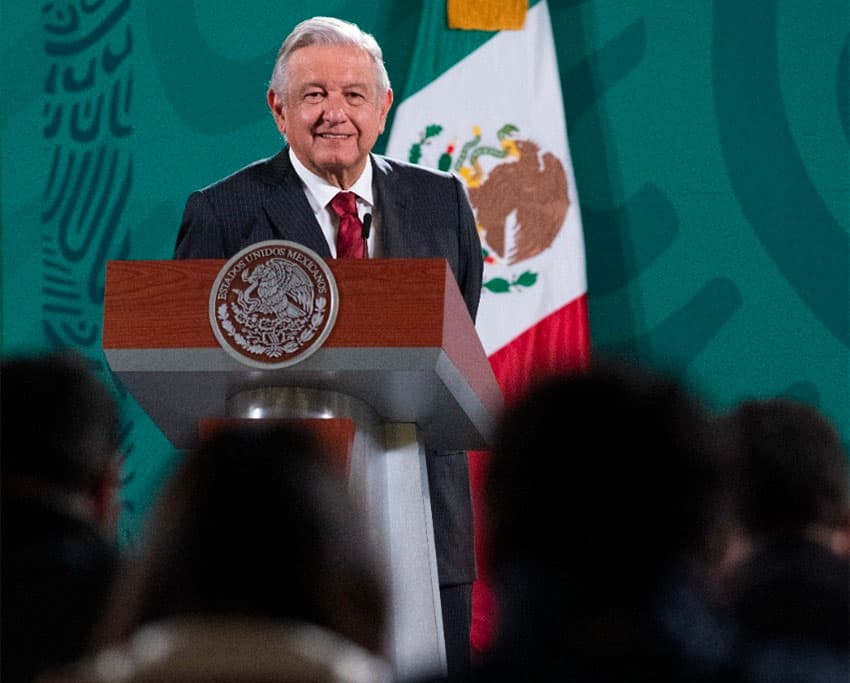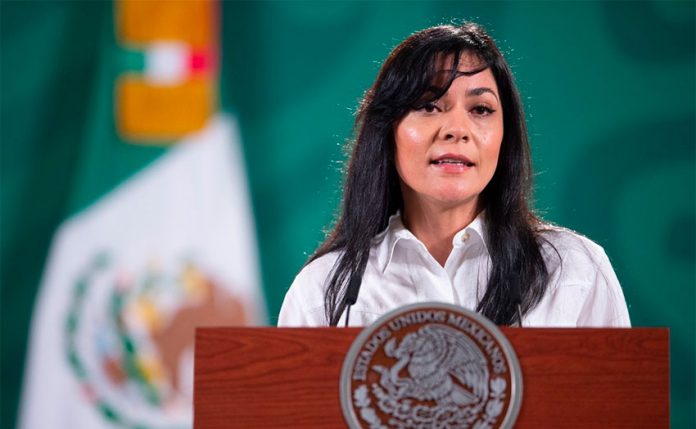It takes chutzpah to disregard facts and then lecture the media about telling the truth.
President López Obrador has long harangued journalists — the Financial Times included — for publishing “unprofessional” and “unethical” stories that criticize him.
But now he has gone a step further, devoting a weekly segment of his morning news conferences, or mañaneras, to naming and shaming columnists and media outlets for publishing news he deems untrue.
The new exercise, “Who’s Who in This Week’s Lies?”, is rich in irony, coming from a president who has been less than truthful 56,181 times at the “mañanera” conferences since December 2018, according to the consultancy Spin. By its tally, López Obrador utters an average of 88 untruths per news conference.
In this he is similar to former U.S. president Donald Trump, who has been accused of making more than 30,000 false claims — not least that he, rather than Joe Biden, won the presidential election.

López Obrador’s mañanera — held Monday to Friday in an imposing salon in the National Palace after the president’s 6 a.m. security cabinet meeting — is both a remarkable democratic exercise and a daily display of stamina from the 67-year-old, who never sits down, even when it drags into a third hour.
Listening can be tedious, with endless repetition and regular digressions — sometimes inaccurate, according to academics — that reflect the president’s passion for 19th-century history. His delivery is slow and yet he is a highly effective communicator who can be mesmerizing.
The inaugural Who’s Who segment last week was littered with inaccuracies — including an erroneous claim about a Forbes report into government spying on journalists and activists dating back to 2017, before the president took office.
López Obrador maintains that his media critics deliberately distort or overlook his achievements because they oppose his plans to “transform” Mexico and hark back to a past in which they received political favours. For him, the mañanera, and “Who’s Who in This Week’s Lies” in particular, is a way to redress the balance.
“I’m really sorry a journalist like you is so ill-informed,” the president this week told Jorge Ramos, as the Mexican reporter and anchor at U.S. network Univision hauled him over the coals about his handling of crime and Covid-19.
Quoting the government’s own figures, Ramos pressed the president on his failure to reduce homicide levels and about Mexico having racked up the world’s fourth highest pandemic death toll.
Looking irritated, López Obrador called the criticism “slander” and anti-government “bias.” He claimed that Ramos had been misinformed and that he had “other data” — an excuse he regularly falls back on.
The government’s message has also clashed with reality over shortages of cancer drugs for children. Hugo López-Gatell, deputy health minister, caused a storm last month when he said protests by desperate parents were being whipped up by international rightwing groups with a “quasi coup-like vision.”
The government has also been accused of making the facts fit the narrative in this year’s commemoration of the 500th anniversary of the fall of the Aztec capital, Tenochtitlán, and the 200th anniversary of Mexico’s independence from Spain.
Although scholars often cite 1325 as the year Tenochtitlán was founded, López Obrador insists it was 1321 and has thus added the 700th anniversary of the founding of the ancient city to this year’s commemorations as a way of reclaiming Mexico’s indigenous heritage.
López Obrador’s attempt to monopolize the truth is worrying even for some of his supporters.
“It’s a serious problem, and it’s dangerous,” says Germán Anonio Hernández, a López Obrador voter from the working-class suburb of Ecatepec. Hernández praises the president for delivering more money to the poor but says he had hoped to see more results by now, halfway through the president’s term.
“He needs to listen to and accept criticism,” he says.
© 2021 The Financial Times Ltd. All rights reserved. Please do not copy and paste FT articles and redistribute by email or post to the web.
